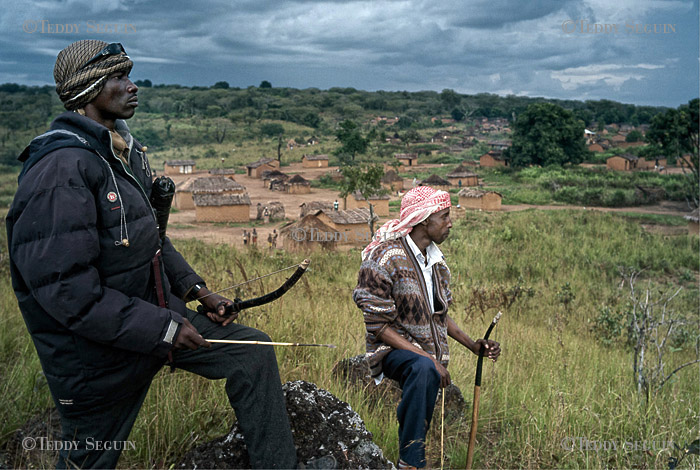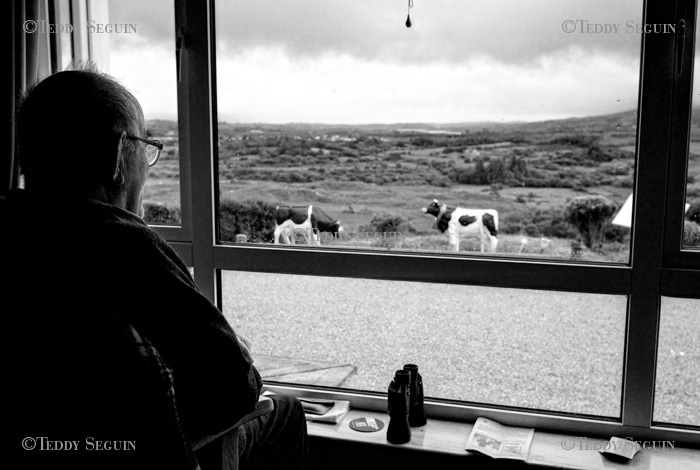REPUBLIC OF CENTRAL AFRICA, BOWS FACING KALACHNIKOV.
Par teddy, dimanche 2 mars 2008 à 19:37.

In the North of the Centrafrican Republic, the Zaraguinas, a group of road blockers, have been frightening local populations for more than 15 years. They specifically target Fulani farmers, who have been living in Central Africa for about a century. As cattle owners, the Fulanis are often considered wealthy and Zaraguinas attack them to steal their beasts or abduct their children. The ransoms they ask can reach millions of CFA Francs (1 million CFA Francs is worth 1,500€). Fulanis then have to sell their cattle in order to gather the money, thus losing their only source of income. As the Centrafrican armed forces (FACA, forces armées centrafricaines) are unable to help against the Zaraguinas in the bush, the Fulanis had to react quickly and to get organised to fight back with their own means. The mayors of the breeding communities created self-defense groups, armed with arcs and poisonous arrows to protect their cattle and intervene in place of the official authorities, against the road blockers, to avoid more kidnappings. Each territory currently runs a group of bowmen to secure the pastures. All of them wear amulets, as a protection against the bullets of the automatic weapons used by the Zaraguinas. Hence protected, their determination and boldness often routs the Zaraguinas. The road-blockers appeared in the 1990s in Centrafrican Republic. Lately, this movement has been encouraged by the political instability and lack of control of the authorities on a whole chunk of territory. Zaraguinas often come from rebel groups from Tchad. Some are ex-liberators, who helped the curent Centrafrican President François Bozizé during the putsch of the15th March 2003. As the new head of the State is quite reluctant to keep his promises, his former men decided to help themselves, thus sinking into organised crime. The bowmen are still not recognised by the Centrafrican State, they have no status nor social protection. They can only rely on the generosity of other cattle breeders and of the mayors to fund their mission of security.
Posté dans ENGLISH | aucun commentaire »

